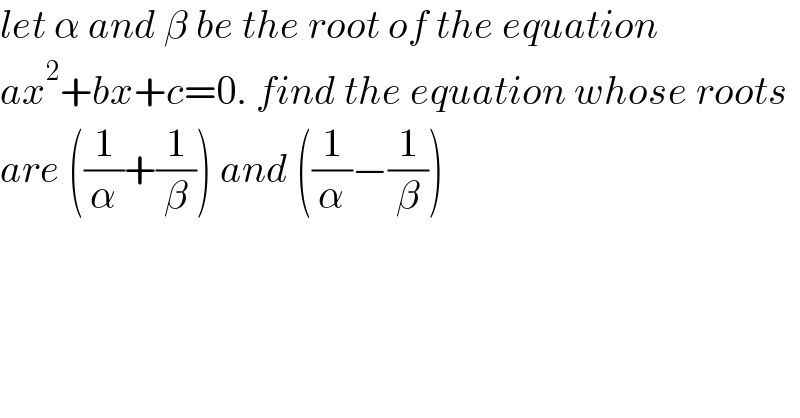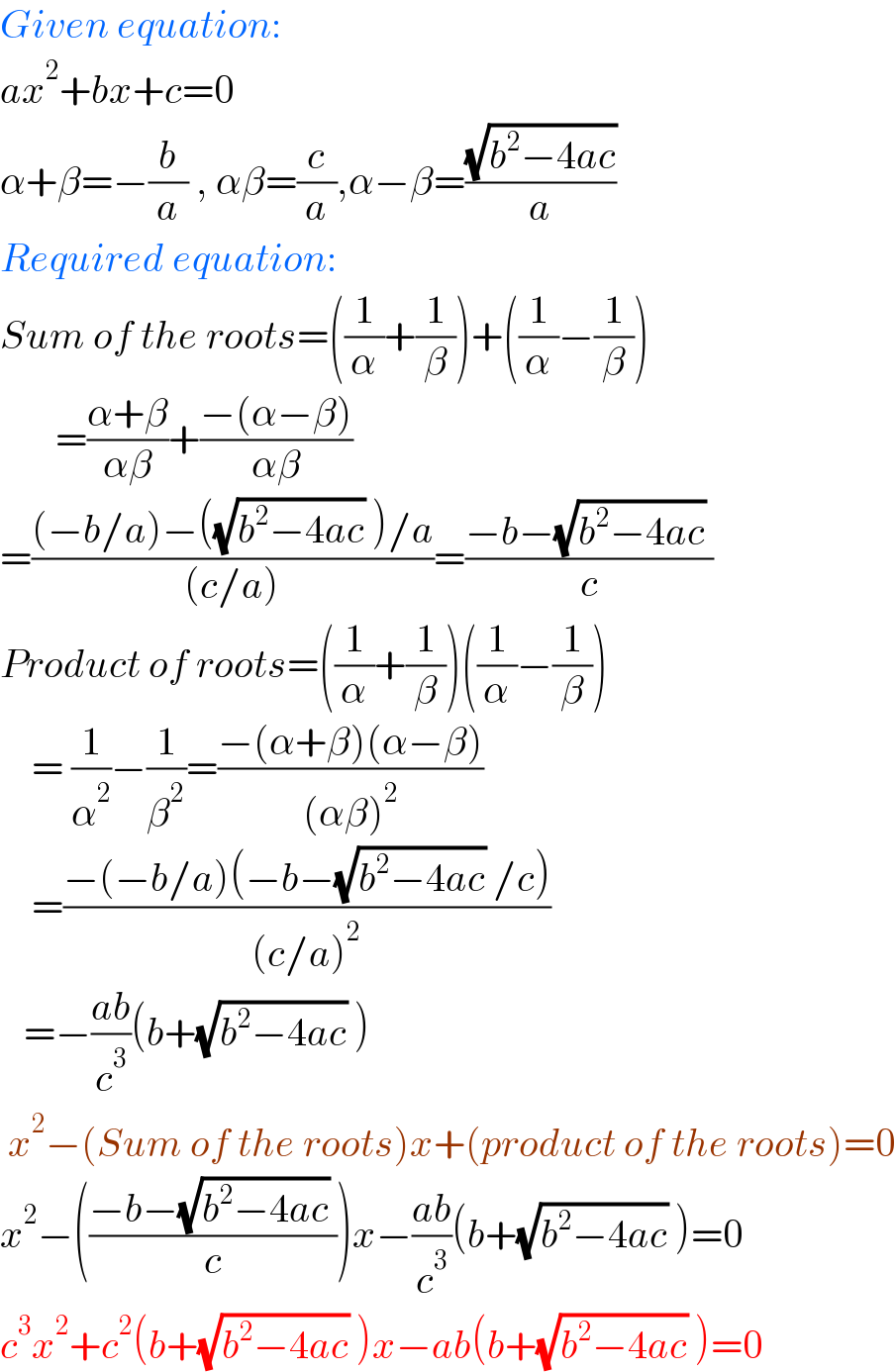
Question and Answers Forum
Question Number 172024 by Mikenice last updated on 23/Jun/22

Answered by Rasheed.Sindhi last updated on 23/Jun/22

Commented by Mikenice last updated on 23/Jun/22

Commented by peter frank last updated on 23/Jun/22

| ||
Question and Answers Forum | ||
Question Number 172024 by Mikenice last updated on 23/Jun/22 | ||
 | ||
Answered by Rasheed.Sindhi last updated on 23/Jun/22 | ||
 | ||
| ||
Commented by Mikenice last updated on 23/Jun/22 | ||
 | ||
Commented by peter frank last updated on 23/Jun/22 | ||
 | ||